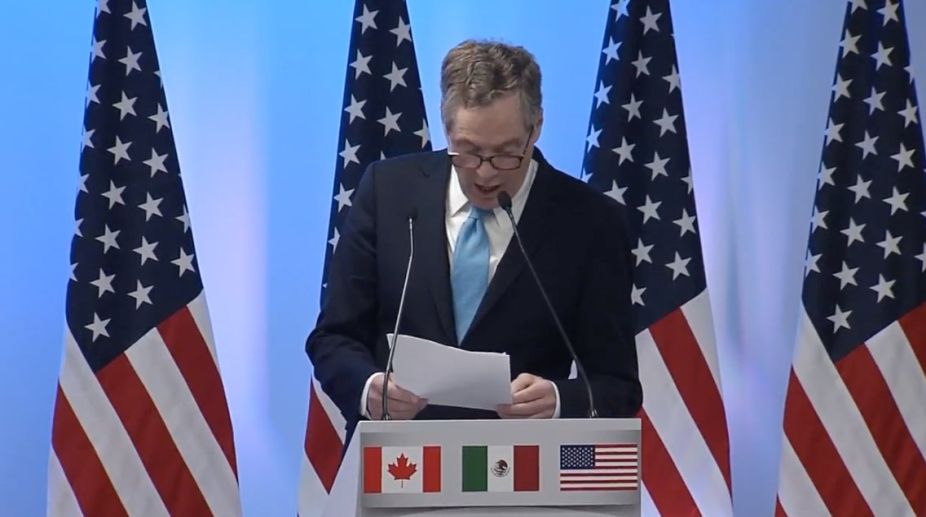Canadian Finance Minister Chrystia Freeland quits Trudeau govt
Hours before the statement on Canada's economy, Chrystia Freeland, Canada's Finance Minister and Deputy Prime Minister, announced her resignation from the Cabinet.

Robert Lightizer (Photo: Twitter)
Representatives of the US, Mexico and Canada announced here that negotiations on revising the 1994 NAFTA will continue into next year in the face of “significant conceptual gaps among the parties”.
US President Donald Trump initially set a goal of completing the talks this year, but the just-completed fourth round of discussions exposed substantial differences among the three governments on key issues, Efe news reported.
Advertisement
“New proposals have created challenges and ministers discussed the significant conceptual gaps among the parties. Ministers have called upon all negotiators to explore creative ways to bridge these gaps. To that end, the parties plan on having a longer inter-sessional period before the next negotiating round to assess all proposals,” US Trade Representative Robert Lightizer told reporters on Tuesday while reading from a joint statement.
Advertisement
The fifth round, to be held in Mexico City, has been postponed until November 17-21.
Lightizer was joined by the leaders of the other two delegations, Mexican Economy Secretary Ildefonso Guajardo and Canadian Foreign Minister Chrystia Freeland.
Trump, a critic of the North American Free Trade Agreement (NAFTA), has repeatedly threatened to scrap the accord altogether if Canada and Mexico do not agree to the changes he wants.
Even before the fourth round began last week, prospects for success seemed to be fading as Washington demanded controversial amendments, such as the addition to NAFTA of a “sunset clause” that would require the treaty to be reaffirmed by all three signatories every five years in order to remain in effect.
Lightizer complained on Tuesday about the unwillingness of his counterparts to accede to US proposals.
“NAFTA has resulted in a huge trade deficit for the United States and has cost us tens of thousands of manufacturing jobs. The agreement has become very lopsided and needs to be rebalanced. We of course have a $500 billion trade deficit. So for us, trade deficits do matter. And we intend to reduce them,” he said.
“Frankly, I am surprised and disappointed by the resistance to change from our negotiating partners.”
Freeland accused the US of taking a “winner-takes-all” approach to the negotiations and described the latest demands as “troubling”.
Advertisement